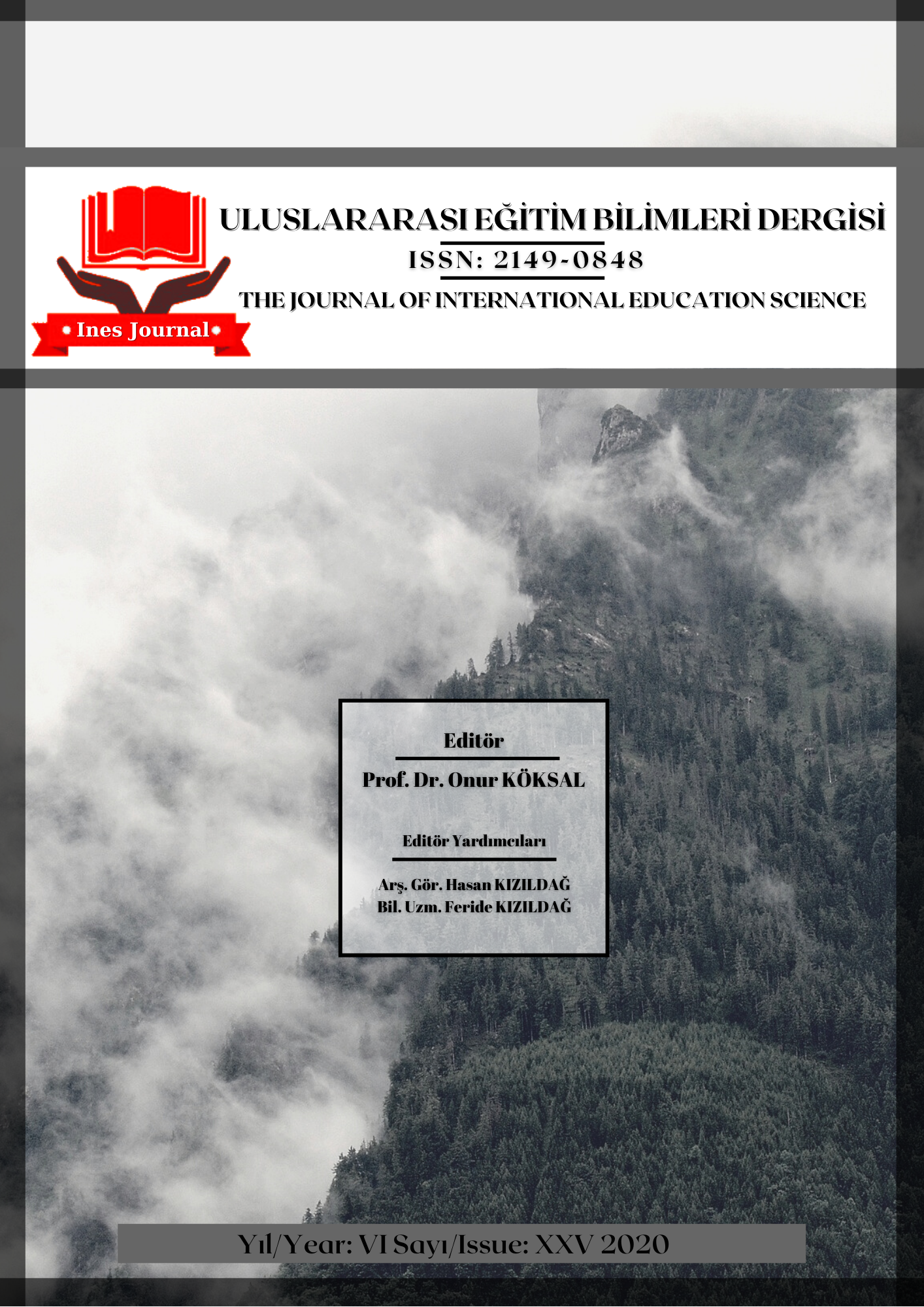Author :
Abstract
Erken çocukluk dönemi olarak adlandırılan 0 – 8 yaş dönemi gelişimin en hızlı olduğu ve çevrenin etkisine en açık olunan dönemdir. Bu dönemde, çocukların beyinlerinin gelişiminin hızlı olduğu ve erken dönemdeki deneyimlerin onların beynin yapısını ve bilgi düzenleme yeteneğini etkilediği belirtilmektedir. Bu dönemde çocukların birçok kavram ve becerili ile birlikte matematikle ilgili sayısız kavramı öğrenerek kullanmaya başladıklarında görülür. Erken dönemde kazanılan matematik becerisi, çocukların bilimsel düşünme becerisinin temelini oluşturan problem çözme, analiz etme, hipotez oluşturma gibi becerilerini destekleyerek okul yıllarında kazanılacak daha karmaşık matematiksel bilgilerin temelini oluşturmaktadır. Ayrıca, çocukların erken dönemdeki matematik becerileri ilerideki akademik başarı, daha yüksek notlarla liseyi bitirme, daha yüksek iş bulma oranı ve mesleki başarı ile doğrudan ilişkilidir. Dolayısıyla, erken matematik becerilerin desteklenmesinde anne babalara ve eğitimcilere büyük görevler düşmektedir. Bu noktadan hareketle çalışmada, okul öncesi dönemde erken matematik becerilerinin özellikleri ve bu becerileri etkileyen temel beceriler tartışılarak anne babalara ve alanda çalışan eğitimcilere öneriler sunulmuştur
Keywords
Abstract
0 - 8 age period, which is called as early childhood period, is the fastest and most open to the effect of the environment. In this period, the development of children's brains is reported to be rapid and early experiences affect their brain structure and ability to regulate information. During this period, it is seen that children started to learn and use many concepts related to mathematics together with many concepts and skills. The mathematical skills gained in the early period form the basis of the more complex mathematical knowledge to be gained during the school years by supporting the skills such as problem solving, analysis and hypothesis which form the basis of the scientific thinking skills of the children. In addition, children's early mathematics skills are directly related to future academic success, higher grade completion, higher employment rates, and professional achievement. Consequently, parents and educators have a major role to play in supporting early mathematical skills. From this point of view, the characteristics of early mathematics skills in preschool period and the basic skills affecting these skills were discussed and suggestions were given to parents and educators working in the field.
Keywords
- Aktaş Arnas, Y. (2018). Okul öncesi dönemde matematik eğitimi. Nobel Kitabevi: Ankara. (2), 7- 12.
- Bloom, B. S. (1970). Taxonomy of educational objectives. Vol. 1: Cognitive domain. New York: McKay, 20-24.
- Burns, M. (2007). About teaching mathematics: A K-8 resource (3th ed.). Sausalito, CA: Math Solution.
- Charlesworth, R., & Lind, K. K. (2010). Math science for young children. New York: Thomson Delmar Learning Corporation.
- Clements, D. H., & Sarama, J. (2011). Early childhood mathematics intervention. Science, 333(6045), 968-970.
- Dinçer, Ç., & Ulutaş, İ. (1999). Okul öncesi eğitimde matematik kavramları ve etkinlikler. Yaşadıkça Eğitim, 62(6), 11.
- Düzce, N., & Cinel, N. (2006). Çocuklara başarılı bir gelecek için erken çocukluk döneminde bilişsel gelişim etkinlikleri. Ankara: Erhun Publishing.
- Geist, E. (2009). Infants and Toddlers Exploring Mathematics. Young Children, 64(3), 39-42.
- Gersten, R., & Chard, D. (1999). Number sense: Rethinking arithmetic instruction for students with mathematical disabilities. The Journal of Special Education, 33(1), 18-28.
- Güven, Y. (2005). Erken çocuklukta matematiksel düşünme ve matematiği öğrenme. İstanbul: Küçük adımlar eğitim yayınları.
- Huttenlocher, J., Jordan, N. C., & Levine, S. C. (1994). A mental model for early arithmetic. Journal of Experimental Psychology: General, 123(3), 284.
- Jackman, L. H. (2005). Early education curriculum: A child’s connection to the world (3rd ed.). NY: Thomson Delmar Learning.
- Kandır, A., & Orçan, M. (2010). Okul öncesi dönemde matematik eğitimi. İstanbul: Morpa Kültür Yayınları.
- Kroesbergen, E. H., Van Luit, J. E. H., Van Lieshout, E. C. D. M., Van Loosbroek, E., & Van de Rijt, B. A. M. (2009). Individual differences in early numeracy: The role of executive functions and subitizing. Journal of Psychoeducational Assessment, 27(3), 226-236.
- Libertus, M. E., & Brannon, E. M. (2010). Stable individual differences in number discrimination in infancy. Developmental Science, 13(6), 900-906.
- Lipton, J. S., & Spelke, E. S. (2003). Origins of number sense: Large-number discrimination in human infants. Psychological Science, 14(5), 396-401.
- Miller, P. H., & West, R. F. (1976). Perceptual supports for one-to-one correspondence in the conservation of number. Journal of Experimental Child Psychology, 21(3), 417-424.
- National Association for the Education of Young Children & National Council of Teachers of Mathematics. (2002). Early childhood mathematics. Available at: https://www.naeyc.org/files/naeyc/file/positions/psmath.pdf
- National Council of Teachers of Mathematics. (2006). Curriculum focal points for prekindergarten through grade 8 mathematics. Washington, DC: National Council of Teachers of Mathematics. Retrieved from: http://www.nctm.org/focalpoints/downloads. asp.
- Olkun, S., & Toluk-Uçar, Z. (2007). İlköğretimde matematik öğretimine çağdaş yaklaşmlar. Ankara: Ekinoks Yayıncılık.
- Sarama, J., & Clements, D. H. (2009). Early childhood mathematics education research: Learning trajectories for young children. USA: Routledge.
- Seo, K. H., & Ginsburg, H. P. (2004). What is developmentally appropriate in early childhood mathematics education? Lessons from new research. In D. H. Clements, J. Sarama, & A.M. DiBiase (Eds.), Engaging young children in mathematics: Standards for early childhood mathematics education (pp. 91–104). Hillsdale, NJ: Erlbaum.
- Sperry-Smith, S. (2016). Erken çocuklukta matematik. S. Erdoğan & H. Arslan Çiftçi (Çev. Ed.) Eğiten Kitap. Ankara.
- Spelke, E. S., & Kinzler, K. D. (2007). Core knowledge. Developmental science, 10(1), 89-96.
- Starkey, P., & Cooper, R. G. (1980). Perception of numbers by human infants. Science, 210(4473), 1033-1035.
- Umay, A. (2003). Matematiksel muhakeme yeteneği. Hacettepe Üniversitesi Eğitim Fakültesi Dergisi, 24(24).
- Ünal, M. (2012). Matematiksel Kavram Gelişiminde Eşleştirme, Sınıflandırma, Gruplama, Karşılaştırma, Sıralama. Berrin Akman (Editör). Okul Öncesi Matematik Eğitimi (s. 5064). Ankara: Pegem Akademi
- Young-Loveridge, J. M. (2004). Effects on early numeracy of a program using number books and games. Early childhood research quarterly, 19(1), 82-98.
- Xu, F., & Spelke, E. S. (2000). Large number discrimination in 6-month-old infants. Cognition, 74(1), B1-B11.
- Wynn, K. (1995). Infants possess a system of numerical knowledge. Current directions in psychological science, 4(6), 172-177.
- Wynn, K. (1996). Infants' individuation and enumeration of actions. Psychological Science, 7(3), 164-169.
